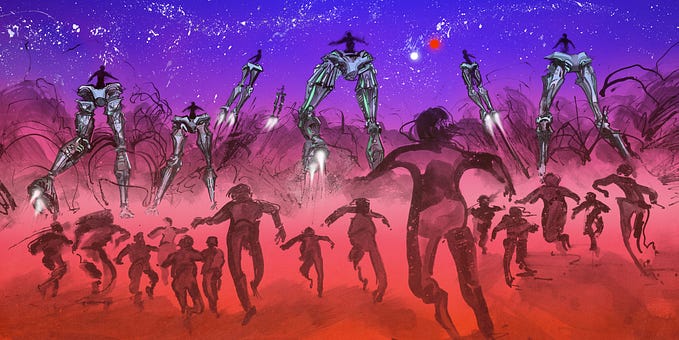Member-only story
Keep Memes Magical
How the quest for empirical evidence can undermine our power

I gave a talk the other night for an event thrown by my friends at Digital Void, who have been mounting what can only be called evenings of stand-up memetics at night clubs in New York City and beyond. The theme of the evening, “Memes, Myth, and Magic,” inspired me to think long and hard about the power of magical thinking, how essential it is to cultural alchemy, and how easily we surrender it to more evidence-based understandings of the world.
The first “memes” I encountered as a kid were supernatural ones, in the occult and paranormal serialized encyclopedia Man Myth and Magic. The pyramids, big foot, succubi, demonic possessions, and chupacabra all functioned in the liminal space between real and fiction. Art Bell’s terrific late-night radio show “Coast to Coast” created a whole subculture around these ideas. Truckers would call in at 3am to share recent encounters with aliens or other paranormal phenomena.
Were these stories verifiably true? Not really, but they weren’t completely false either. They were remotely possible on some level, and that in itself was enough to create some “wiggle room” in the authority of consensus reality. They were enough to pose, or at least to practice, “what if?”
As media became more interactive, these memes became what I called “media viruses,” spreading sideways through faxes, email, chat rooms, and eventually social media. And they still released a certain power. The Rodney King tape exposed the untold story of black life in Los Angeles. Madonna and Michael Jackson’s self-mutations asserted identity as plastic and self-determined. Memesters like RTMark (the YesMen), Genesis P-Orridge, and Grant Morrison saw countercultural activity as a form of sigil. RTMark surreptitiously switched the voice boxes of GI Joes with those of Barbies, and returned them to the shelves of ToysRUs. The decentralized, largely net-based Zapatistas’ revolutionary movement embraced the memetic power of their black masks, and the power for memetic transmission offered by the early web to tell hidden stories of oppression.
Memetics were understood as a way to force alternative world views into the popular imagination. They were an assertion that things are not quite as they seem…







